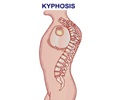Once a month osteoporisis drug and extra telephone support from trained nurses has met with 47 per cent greater persistence among women for their drug treatment than those who took a weekly tablet.
Once a month osteoporisis drug and extra telephone support from trained nurses has met with 47 per cent greater persistence among women for their drug treatment than those who took a weekly tablet, according to a study in the August issue of IJCP, the International Journal of Clinical Practice.
103 primary care centres across the UK took part in the PERSIST study between January 2005 and January 2006, with 1,076 women each agreeing to participate for a six-month period.542 were prescribed a single 70mg dose of alendronate once a week and the remainder received a single monthly 150mg dose of ibandronate and were enrolled in a free patient support programme designed to complement the drug.
The monthly ibandronate group received a welcome pack providing basic information about osteoporosis and a monthly reminder call from a trained nurse one to three days before the dose was due.
The nurses also used the opportunity to confirm dosing instructions, provide further information about osteoporosis and stress the importance of adhering to the treatment regime.
835 women completed the study, leaving 440 in the monthly ibandronate group and 395 in the weekly alendronate group.
Of these, just under 57 per cent of patients receiving monthly ibandronate tablets, together with patient support, were taking the medication after six months. The persistence rate for patients on weekly alendronate tablets was 39 per cent.
Advertisement
"The World Health Organization estimates that only 50 per cent of patients with chronic diseases in developing countries stick to treatment regimes. And the American Heart Association has identified failing to take medication correctly as the number one problem in treating ill health today.
Advertisement
"Sufferers find that their bones become increasingly brittle and this increases the risk of serious factures, especially if they don't take their medication on a regular basis" says Dr Cooper. "It's estimated that one in two women over 50 will experience a fracture at some time because of fragile bones, so any treatment regime that improves compliance is to be welcomed."
The women who took part in the study had an average age of 68 and more than a third had a family history of osteoporosis.
45 per cent had already suffered a fracture, with just under a third reporting one incident and a further ten per cent reporting two. Four per cent had experienced three to five factures.
"Our study clearly shows that women who were prescribed monthly doses of ibandronate, and enrolled on a patient support programme, were much more likely to continue taking their medication than those on weekly doses of alendronate" concludes Dr Cooper.
"Evidence suggests that adhering to regular treatment for osteoporosis improves bone mass density and reduces fracture rates. This, in turn, reduces the social and economic burden of this very common and debilitating chronic condition."
Source Eurekalert











